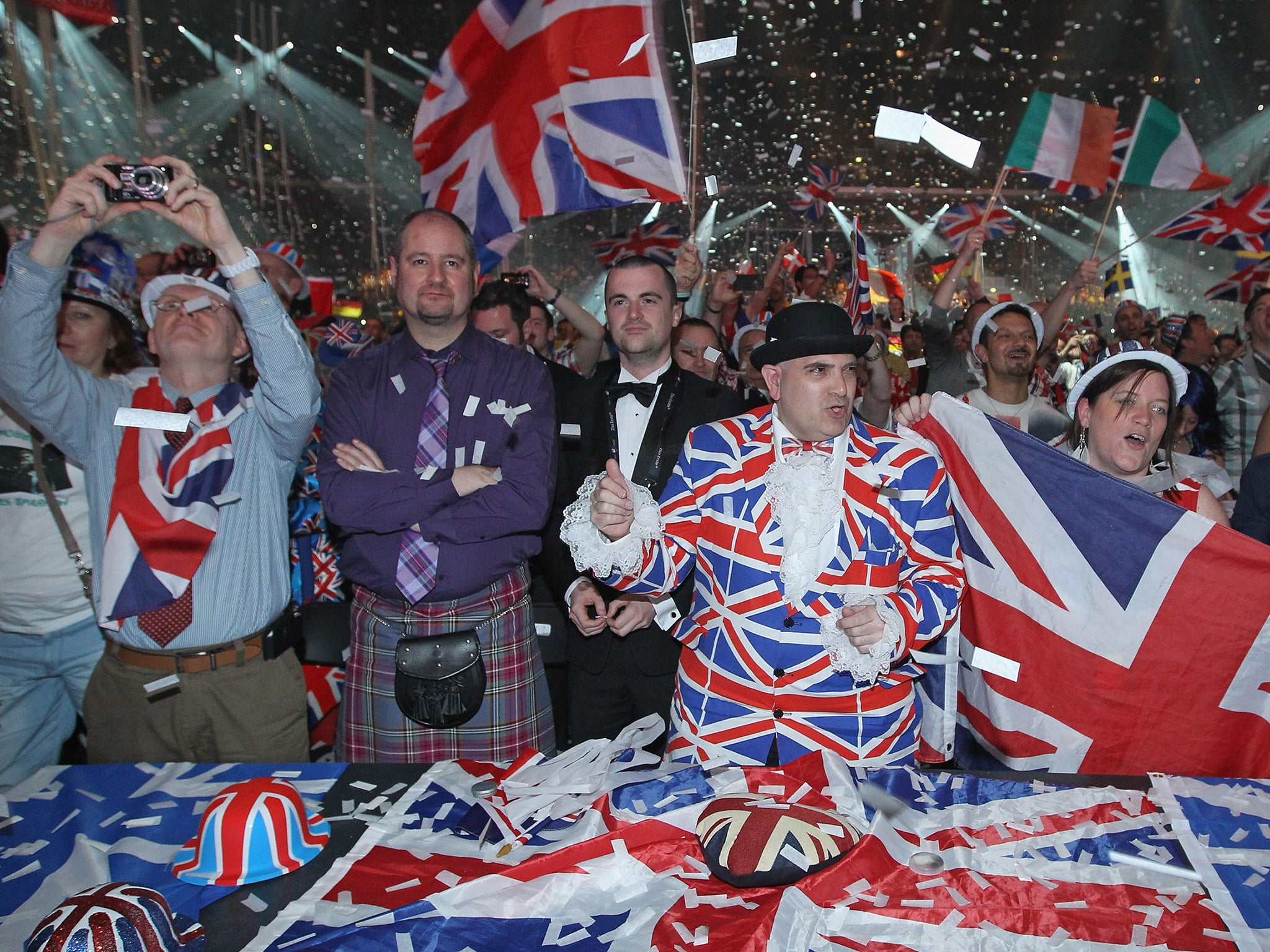Why is Britain is so bad at Eurovision?
The UK has won Eurovision five times, but has failed to triumph in nearly 20 years

It's not just members of the Labour party who wish they could go back to 1997: May of that year was a glorious one for British lefties and Eurovision fans alike.
Just two days after Tony Blair swept Labour to power after 18 years in the wilderness, Katrina and the Waves romped to victory in Dublin with "Love Shine a Light." Ah, 1997: New Labour, New Britain.
The comparison continues, for as Blair turned from fresh-faced to war-weary, the UK tumbled from Katrina's winning perch. The past 18 years have seen Gina G fail, Jemini score nil points and a reformed Blue leave Dusseldorf empty-handed in 2011.
Katrina's victory in 1997 was ground-breaking for another reason: televoting. The UK, along with Austria, Switzerland, Germany and Sweden, allowed viewers at home to vote on where their country's points were allocated. The next year, the Eurovision authorities encouraged all countries to embrace telephone voting and a whole new crop of countries began to triumph. Between 2001 and 2008, all the winners were first-time champions: Estonia, Latvia, Turkey, Ukraine, Greece, Finland, Serbia and Russia.
Soon, cries of tactical voting from eastern Europe and Scandinavia meant the British public saw the competition as the petty, pop arm of European politics. This political conspiracy became the perfect ammo for the likes of Terry Wogan and other critics to trash the Eurovision brand.
The Eurovision powers have now changed the rules, with countries awarded points by combining the public vote with that of a music jury.
Daniel Gould, a professional gambler and co-founder of sofabet.com, argues that the contest has moved away from being a political battle and towards a competition about "creditable songs sung by creditable artists." He also says that the UK only has itself to blame for its recent failures. Gould should know; he makes his living betting six-figure sums on the competition.
"These days what it takes for a country to win Eurovision is the opposite of the traditional British notion of what wins Eurovision," Gould told The Independent. "The British think you need: one, a gimmick, and two, political voting.
"They changed the rules so that the juries now rank every country from one down to 26 or 27," Gould explains. "That means if you’re presenting something lightweight or fluffy, the juries, rather than just not putting you in their top ten, they can put you down at 27th. So, even if you win the television vote in a country, if the jury has placed you last, you're likely not to get any points at all.
"Whilst some people will say that Austria won in 2014 with a bearded lady, I would say that Conchita Wurst actually had a credible song that sounded a bit like Skyfall. She performed it brilliantly and that's why she won. If she had performed something campy and lightweight, she would not have won."
Gould agrees with Julian Vignoles, the author of Inside the Eurovision Song Contest and a former member of the Eurovision Song Contest Reference Group, about how the UK has tried to use former big stars to rejuvenate their prospects, yet failed to grasp the more credible, modern face of the competition.
Vignoles writes that acts like Engelbert Humperdinck and Bonnie Tyler "in their heyday would surely have been real contenders, but were now performing with voices and images probably past their 'sell by date.'"
For Gould, since the BBC took the public's choice to select the UK act away from them, promise was shown when they gave Andrew Lloyd Webber the responsibility for composing Jade Ewan's song in 2009 and when they gave an opportunity to rising star Molly Smitten-Downes. However, with this year's candidate, Electro Velvet, it's been another step backwards.
"This year, the reversion to something gimmicky and irrelevant by contemporary pop music standards, that was part of the reason why people were so unhappy when the video aired," Gould said. "So that's why the UK has done badly in recent years: either the public choose something that pleases them, or the BBC has a haphazard policy of choosing the song."
Vignoles writes that the UK, and its neighbour Ireland, have to come to terms with how the competition has changed: "the contest has moved on in so many ways: musical taste has evolved, other countries invest more in their participation and the contest has more status in many of these countries."
‘The Eurovision Song Contest Grand Final’ will be broadcast on BBC1 and BBC Radio 2 on Saturday
Join our commenting forum
Join thought-provoking conversations, follow other Independent readers and see their replies
Comments
Bookmark popover
Removed from bookmarks